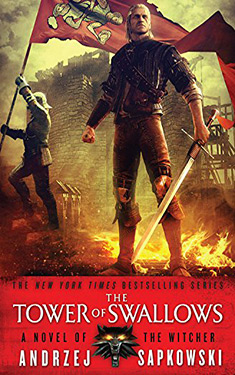Andrzej Sapkowski
Completed 6/5/2016, reviewed 6/7/2016
4 stars
This is the fourth book of the Witcher Saga, and the seventh
book of the Witcher series. Unlike the
other books, the prose and form of this book are wondrous. It felt like Sapkowski finally honed his
writing ability and came up with a much more mature storytelling style. It created a tone that is much more serious
and less straight-forward swashbuckling adventure, lending a gravity to the
plot which wasn’t as evident in the previous books.
The form that Sapkowski uses is to have multiple narrators
telling the story. The perspective
changes depending on the narrator. But
the narration isn’t told in big blocks.
It bounces back and forth between the perspectives to pull all the different
emotions and tensions out of the story.
It doesn’t rely on a single third person omniscient thread. Rather it makes a linear story out of
multiple threads. The result is a much
more powerfully developed universe that the previous books only hinted at. One could argue that the universe of the
Witcher was already well developed by the scope of the saga. However, I feel that this book fleshed it out
in a piece of fine literature.
Be aware that giving a plot summary here is a spoiler if you
haven’t read the previous novels. As
usual, I’ll keep it brief so that it doesn’t give away too much.
The story continues with the Witcher searching for his ward,
the apprentice witcher/sorceress Ciri.
Up to this point, she has been escaping capture by the hordes of bad
guys who have been after her. In this
installment, she finally succumbs to a powerful bounty hunter. The main plot of this book is the telling of
how she gets captured and plight after that, while the witcher and his company
traverse dangerous roads in their search for her.
The story is also much more adult, in that Ciri has a
relationship with another young woman in the ragtag group of outlaws she had
fallen in with in the last book. It’s
handled really well, not going into a lot of detail, but allowing it to have a
profound affect on her. This makes up
for Sapkowski’s use of the word “sodomites” which made me bristle when he
plopped it into the first book.
I again give this book four out of five stars. This time, it’s not because it’s as fun to
read. It’s not. It’s because it is much more serious in tone
and mature in style. It should be noted
that this book has a different translator which may have had an influence on
the word and phrase choices. Overall, I
feel this is the strongest of the books, except perhaps for the “The Last Wish”
which introduced the Witcher in a series of short stories.

No comments:
Post a Comment